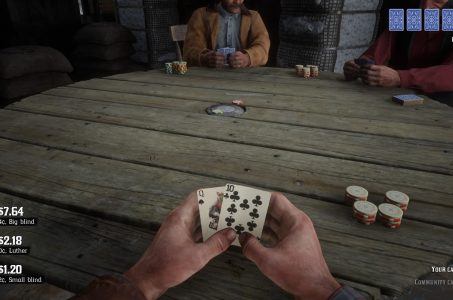Facebook Gambler from Tasmania Defrauds Almost $1M from Employer
Posted on: March 10, 2022, 07:21h.
Last updated on: March 11, 2022, 09:50h.
A women in Tasmania spent three years bilking money from her employer so she could gamble on Facebook. She now faces six years in jail following a judge’s rejection of her appeal for a reduced sentence.

Rachel Naomi Perri decided that she simply couldn’t live without the online slot game, Heart of Vegas. She was willing to do anything to keep playing it, despite the fact that the gambling game is for entertainment – it doesn’t pay out real money.
That didn’t stop her, though. She was so enamored with the game that she spent three years robbing her employer, Tasmanian Veterinary Services, to feed her addiction. After everything came to light and her actions were discovered, the company was out AUD$940,221 (US$690,310).
Prosecutors went after her, and in December, sentenced her to six years in prison, according to Yahoo!. She felt it was too harsh of a sentence and launched an appeal. Today, she lost one more time.
Hung Up on Hearts
Heart of Vegas is a slot machine in the social casino games category. It doesn’t pay out any winnings and is meant as fun and entertainment. It is available as a download for Android and iOS devices but is also on Facebook.
In the game, players can purchase virtual coins to continue to play if they don’t win enough playing. Perri became such an addict that she reportedly set up a mechanism to allow the game to automatically play all night while she slept. When she woke up the next day, she would take over.
Starting in 2016, to support her addiction, Perri began embezzling money from the vet clinic. She managed the books and forged payment entries to mask her activity. She would record the legitimate name of the payment recipient but would list one of her own bank account numbers. This went on for three years.
In addition to stealing from her boss, Perri charged over AU$24,000 (US$17,600) to a credit card she scammed.
Ultimately, the clinic uncovered the fraud only after noticing anomalies in 2019. They called in the police and during an interview, she admitted to her actions. This led to a guilty plea on 25 counts of computer-related fraud.
Time for Sentencing
Appearing before a judge last December, Perri learned that she would spend the next six years behind bars. Additionally, she would not be eligible for parole until after three and a half years.
Thinking the punishment didn’t fit the crime, Perri appealed. However, it was a futile attempt. Her actions in covering her tracks and the length of time in which she perpetrated her crimes meant the punishment was on target.
This is according to the three-judge panel that listened to the appeal, all of whom agreed to the rejection. It reportedly only took them a few minutes to reach that conclusion.
The Social Games Conundrum
The social games segment has come under fire more than once. Apple faced a lawsuit over the last year in California, accused of offering illegal gambling. However, because making purchases in the game is not a requirement, Apple asserted that it was in the right.
Probably no case is as infamous as the Big Fish Games debacle. A federal judge ruled in favor of plaintiffs in 2018, ordering the Aristocrat-led company to reimburse players a total of $155 million.
To this day, some people have asserted that they still have not received their funds.
Gambling Addiction or Brain Malfunction?
The US National Library of Medicine cites a study that shows that the prevalence of pathological gambling in the US is about 1%. It also states that 86% of the population have admitted to gambling at some point in their lives – 60% do it every year.
From this, it’s easy to conclude that the act of gambling does not lead to gambling addiction. If that were the case, the penetration rate of pathological gamblers would be higher. Instead, other mitigating factors come into play.
Among the suggestions are a chemical imbalance in the brain and a problem with the dopamine neurotransmitters. Dopamine delivers the feeling of pleasure to the brain. This is why some psychologists have argued that, when dopamine regulation is out of whack, those individuals will look for anything to increase the pleasure sensation. If it isn’t gambling, it will be something else.
Related News Articles
Study Claims 70 Percent of Casinos Mulling Skill-Based Games
Study: Gambling in Video Games Goes Way Beyond Loot Boxes
DoubleDown Stock Could Be Near Double in the Making
Most Popular
LOST VEGAS: The Strip’s First Fountain Show
Virgin Taking Over Las Vegas Casino Ops, Mohegan Out
Washington State Casino Reopens Weeks After Apparent Cyber Attack
Most Commented
-
End of the Line for Las Vegas Monorail
— April 5, 2024 — 90 Comments -
Cracks Emerging on Las Vegas Strip Says Analyst
— April 30, 2024 — 18 Comments -
Mega Millions Reportedly Mulling Substantial Ticket Price Increase
— April 16, 2024 — 11 Comments -
Caesars Open to Selling ‘Non-Core’ Casinos to Reduce Debt
— May 1, 2024 — 8 Comments
















No comments yet